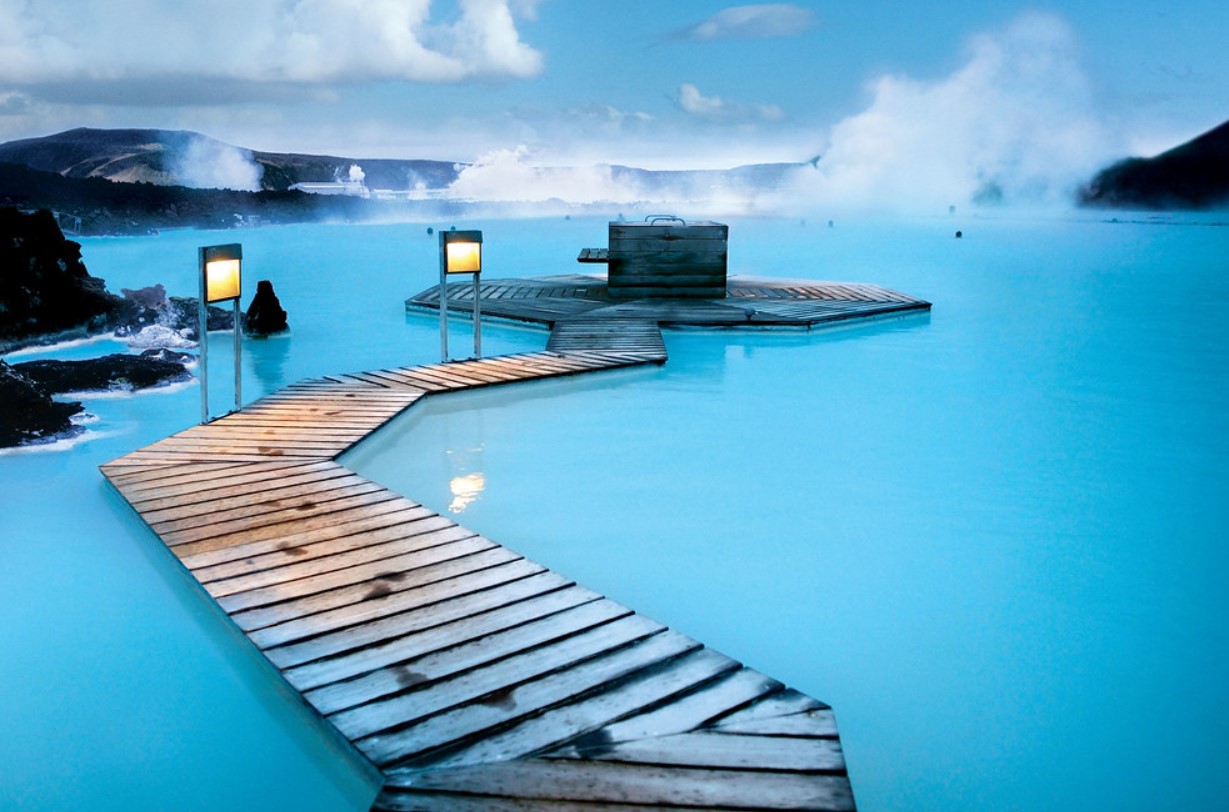The reopening of the iconic spa
One of Iceland’s most famous attractions, the Blue Lagoon, has reopened its doors to visitors after being closed for more than two months due to volcanic activity. The geothermal spa, located in a lava field near Reykjavik, is known for its mineral-rich waters that have healing and rejuvenating properties. The spa also offers a range of facilities and services, such as a hotel, a restaurant, a cafe, a shop, and a spa clinic.
The Blue Lagoon had to shut down on November 9, 2023, when a series of earthquakes rocked the Reykjanes peninsula, where the spa is located. The seismic activity indicated a possible eruption of a nearby volcano, which could pose a threat to the safety and infrastructure of the area. The authorities evacuated the residents and tourists from the nearby town of Grindavik, and issued a danger alert for the region.

The situation remained tense for weeks, as the earthquakes continued and the magma moved closer to the surface. On January 14, 2024, the volcano finally erupted, creating a spectacular show of lava and smoke. The eruption was relatively small and did not cause any damage or injuries, but it forced the Blue Lagoon to close again, just a few days after it had reopened on January 6.
However, the eruption soon subsided, and the experts declared that the area was safe again. On January 20, the Blue Lagoon announced that it would reopen on January 22, with some restrictions and precautions. The spa said that it had followed the guidance of the authorities and the scientists, and that it had taken measures to ensure the quality and safety of its water and facilities.
The reaction of the visitors and the industry
The reopening of the Blue Lagoon was welcomed by many visitors and industry representatives, who had been eagerly waiting for the opportunity to enjoy the spa again. The Blue Lagoon is one of the most popular tourist destinations in Iceland, attracting more than one million visitors per year before the pandemic. The spa is also a major source of income and employment for the local community and the country.
Many visitors expressed their excitement and gratitude on social media, sharing photos and videos of their experience at the Blue Lagoon. Some of them even got to witness the volcano from the spa, which added to the thrill and beauty of their visit. The spa also received positive feedback and support from its partners and collaborators, such as airlines, hotels, and travel agencies.
The reopening of the Blue Lagoon is also seen as a sign of hope and recovery for the tourism industry in Iceland, which has been severely affected by the pandemic and the volcanic activity. The industry has been struggling to survive and adapt to the changing situation, with travel restrictions, health protocols, and natural disasters. The industry hopes that the reopening of the Blue Lagoon will attract more visitors and boost the economy and the morale of the country.
The future of the Blue Lagoon and the volcano
The Blue Lagoon said that it is looking forward to welcoming more guests in the coming weeks and months, as the situation improves and the travel restrictions ease. The spa said that it is committed to providing a safe and enjoyable experience for its visitors, and that it will continue to monitor and follow the advice of the authorities and the experts. The spa also said that it is grateful for the support and trust of its customers and partners.
The volcano, on the other hand, is still active and unpredictable, and could erupt again at any time. The experts said that the eruption is part of a natural cycle that occurs every 800 years on the Reykjanes peninsula, and that it could last for months or years. The experts also said that the eruption is not dangerous for the people or the environment, as long as they follow the rules and the warnings. The eruption is actually a rare and fascinating phenomenon that offers a unique opportunity to observe and learn from nature.







